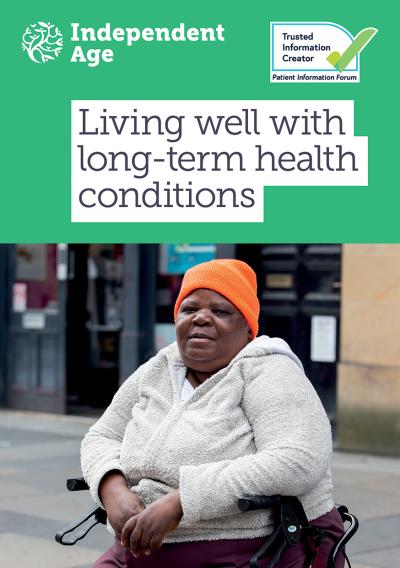Related publications

The internet can be great for finding information about your health condition and getting support. But it’s crucial to make sure you’re looking at information you can trust. Here are some tips on what to look out for.
It can be really handy to have so much information at your fingertips. The internet can help you to manage your condition in a number of ways:
Some people buy medication online, but this can be risky. You should only buy from a registered online pharmacy. Read the NHS guidance about the dangers of buying medicine online.
At some point, you’ll probably need to search for something on the internet. You might do this through a search engine or through a search function on a particular website, such as the NHS websites. Here are some ways to get the best results from your search.
Medical advice changes over time, so make sure what you’re reading is up to date. Some websites include their publication date.
Who has written it and why? For example, are they just trying to pass on information or do they have other aims, such as trying to sell you something?
Is it well written, without errors? Do links work?
What is true for one person may not be true for you, even if you have the same condition. Is the author expressing an opinion based on their own experience or stating a fact and giving evidence to back it up?
Check if it is endorsed by an organisation you trust, such as the NHS. You can also check if it has been accredited as a source of reliable health information, for example by the Patient Information Forum’s PIF TICK. Does it follow general guidelines, such as those set out in the NHS England content policy? You can also look for information from well-known charities or government-run organisations (look for websites ending in .gov).
Can you see the sources, either on the website or by asking the organisation for them? Do they look reputable? For example, is the information based on scientific evidence? See if you can cross-check it with another website you trust or in a printed source. You can also check the website to see if there is information about how they produce their content.
Remember, if you’re unsure about anything, check with your GP or consultant. Don’t base an important medical decision on online information alone.
For general health information:
Patient.info – healthcare information written and reviewed by doctors. It also has discussion forums for many health conditions.
To share experiences:
Healthtalk – information based on people's real-life experiences. It includes videos where they talk about their experiences
Health Unlocked – a social network where people can talk about their conditions. It’s moderated by patient organisations and charities.
And for specific conditions:
This isn’t a complete list. There are charities for many health conditions offering information and advice.
By calling Independent Age's free and impartial Helpline, you can get information and advice from one of our friendly advisers, or order our free guides.